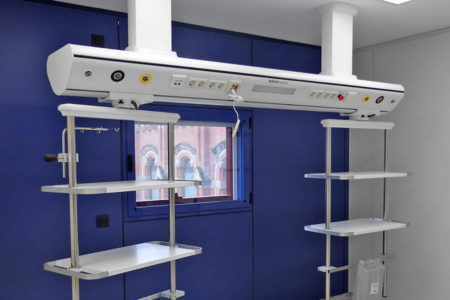The digitization of healthcare systems has provided countless benefits, from simplifying administrative processes to improving medical care and reducing costs. However, it has also opened a door for cybercriminals who see the healthcare sector as an attractive target for their attacks. Cyberattacks on healthcare are a growing problem that concerns cybersecurity experts and the healthcare sector as a whole.

The increase in cyberattacks in healthcare
In recent years, cyberattacks on the Spanish healthcare system have increased significantly. According to the National Cybersecurity Institute (INCIBE), in 2022, more than 500 healthcare institutions reported incidents, representing a 48% increase compared to the previous year. Additionally, a report by the Sham group highlights the vulnerability of connected treatment and diagnostic devices in the healthcare sector.
“This increase in recent years can have devastating consequences. One of the biggest risks is the theft of patients’ personal data, which can lead to identity theft, theft of medical information, and unauthorized access to patients’ medical records.”
Additionally, cyberattacks can block computer systems, which can prevent hospitals and clinics from accessing vital patient information and delay medical treatment. These attacks can also affect the critical infrastructure of hospitals, such as energy supply systems and security systems, which can endanger patients’ lives.
The increasing dependence on technology for the operation of hospitals and medical facilities has made the healthcare sector an attractive target for cybercriminals. Patients’ medical and personal data is extremely valuable to cybercriminals, and the sensitivity of this data makes it an interesting target. Additionally, the COVID-19 pandemic has intensified attacks on healthcare, leading the European Union to take measures to improve the sector’s cybersecurity.

The causes of cyberattacks in the healthcare sector
There are several causes of cyberattacks in healthcare.
Firstly, medical information is extremely valuable on the black market, and cybercriminals can make large sums of money by selling this information. Additionally, healthcare systems often have weaker security systems than other industries, making them easier targets for cybercriminals.
Cybercriminals use various techniques to attack healthcare systems, such as ransomware, phishing, and exploiting vulnerabilities in the computer system. Hospitals and healthcare facilities are especially vulnerable to ransomware attacks, as they rely heavily on the data and information they handle. Additionally, medical devices are particularly vulnerable to cyberattacks, despite their importance to life and healthcare.
Another cause of cyberattacks in healthcare is the lack of investment in cybersecurity. Many hospitals and clinics do not have the necessary resources to protect their information systems, making them easy targets for cybercriminals. Furthermore, many healthcare employees are not trained to identify and prevent cyberattacks, which can lead to security breaches.

Solutions for cyberattacks in healthcare
Preventing cyber attacks is essential to ensure the safety of patients and the continuity of medical services.
There are several possible solutions for cyber attacks in healthcare.
Firstly, greater investment in cybersecurity is needed to protect the information systems of hospitals and clinics. This may include hiring cybersecurity experts and implementing more advanced security measures.
Additionally, there is a need for greater training for healthcare employees. Healthcare workers should be trained to identify and prevent cyber attacks, as well as to recognize early warning signs of a possible attack. This may include education on phishing methods and the implementation of stricter security policies.
Another solution is the implementation of more advanced security measures, such as two-factor authentication and data encryption. These measures can help protect healthcare information systems and ensure the safety of patient medical information.

In conclusion, cyber attacks on healthcare are a growing problem that concerns the healthcare sector and cybersecurity experts. The dependence on technology and sensitivity of data make the healthcare sector an attractive target for cyber criminals. It is essential to take preventative measures to ensure the safety of patients and the continuity of medical services in an increasingly digitalized environment.









